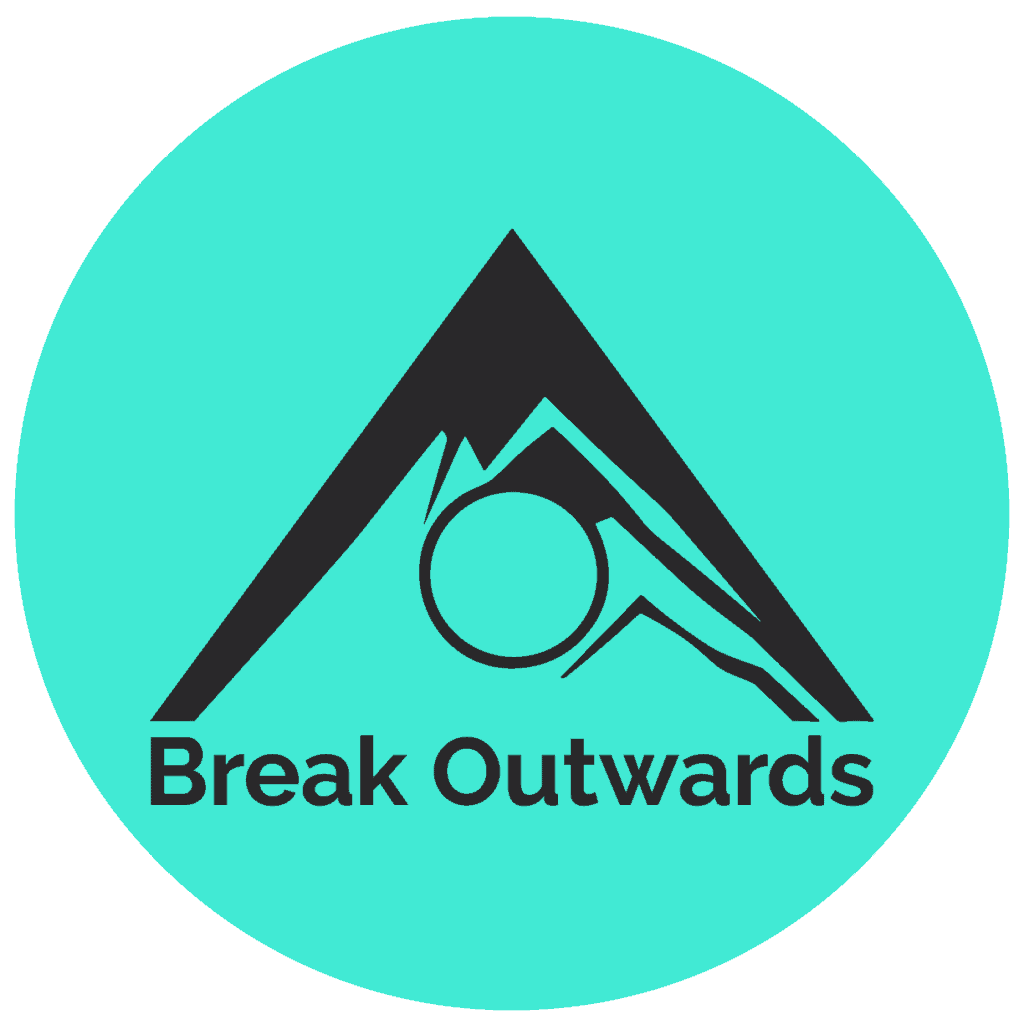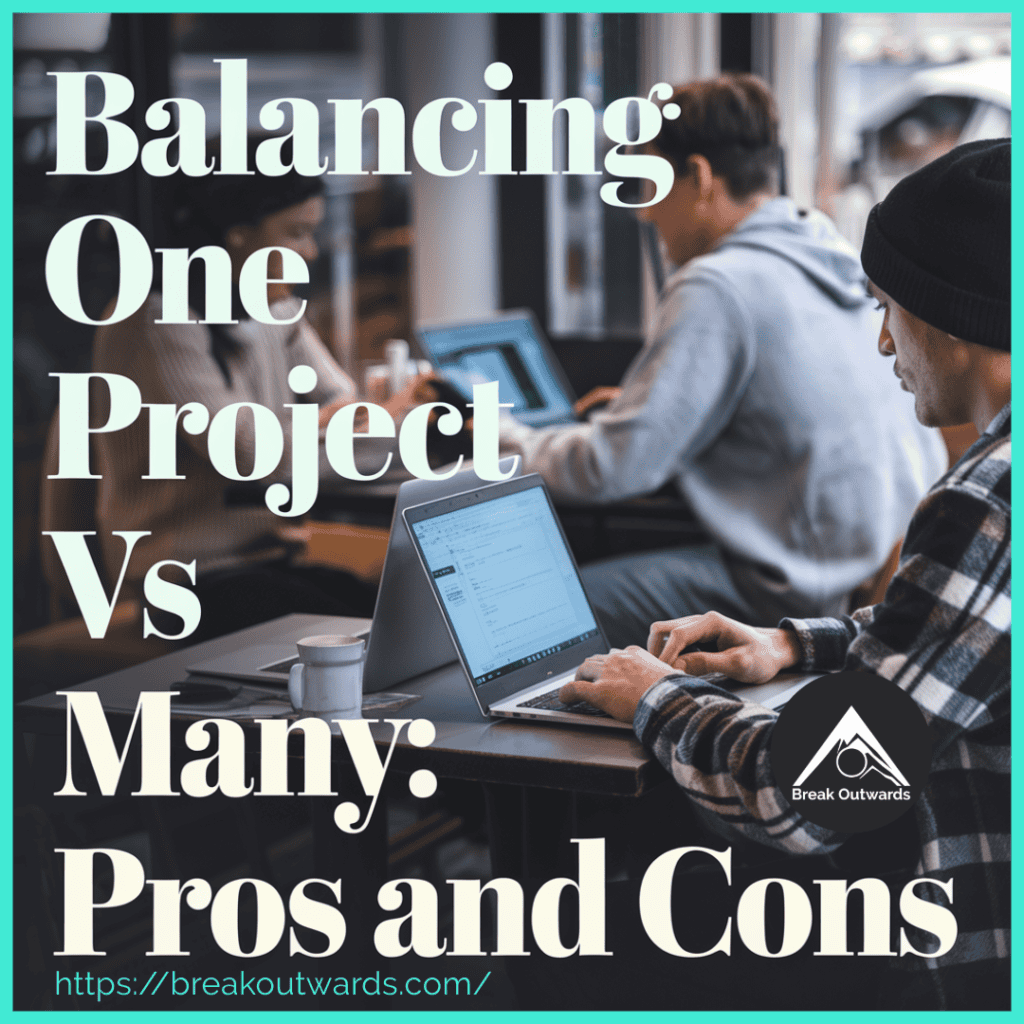Balancing One Project vs Many: Pros and Cons

In the ever-evolving landscape of digital nomadism and remote work, one of the most pivotal decisions professionals face is whether to channel their energy into a single, all-encompassing project or to diversify their efforts across multiple ventures. This choice isn’t just about time management or productivity—it’s a fundamental approach to how we structure our work lives and pursue our goals.
For digital nomads, freelancers, and remote workers, this decision carries unique weight. The freedom to choose projects and manage workloads comes hand-in-hand with the responsibility of making strategic choices that align with both personal fulfillment and professional growth. Whether you’re crafting code from a beachside café or developing marketing strategies from a mountain retreat, the question remains: Is it better to dive deep into one project, or cast a wider net?
This article delves into the pros and cons of both approaches, offering insights to help you navigate this crucial decision. We’ll explore how focusing on a single project can lead to mastery and depth, while juggling multiple projects can spark creativity and open new opportunities. By understanding the nuances of each strategy, you’ll be better equipped to make informed decisions about your work approach, ultimately enhancing your productivity, satisfaction, and success in the dynamic world of location-independent work.
Join us as we unpack the complexities of the single vs. multi-project debate, providing you with the knowledge to craft a work strategy that resonates with your unique goals and lifestyle as a digital nomad or remote professional.
Pros and Cons of Focusing on One Project

Focusing on One Project: The Digital Nomad’s Deep Dive
For digital nomads and remote professionals, dedicating yourself to a single project can feel like finding your anchor in a sea of possibilities. But why might this approach be appealing, and what are its potential drawbacks? Let’s explore the pros and cons of this focused strategy.
Pros of Focusing on One Project
- Increased Focus and Quality When you channel all your energy into a single project, the results can be transformative. For a digital nomad, this might mean:
- Developing a standout portfolio piece that showcases your expertise
- Building deeper relationships with a single client or community
- Creating a product or service that truly disrupts your niche
The undivided attention you give allows you to refine every detail, potentially leading to groundbreaking innovations or exceptional client satisfaction.
- Simplified Management and Reduced Stress With only one project to manage, you can:
- Streamline your workflow and daily routines
- Reduce decision fatigue, a common challenge for digital nomads
- Minimize context-switching, allowing for deeper work sessions
- Simplify your travel plans, aligning them with a single project’s needs
This focused approach can lead to a more balanced work-life integration, crucial for maintaining long-term success as a digital nomad.
- Opportunity for Mastery and Expertise Concentrating on one project allows you to:
- Become a recognized expert in a specific field or technology
- Develop a deep understanding of a particular market or client base
- Create thought leadership content that establishes your authority
This expertise can lead to higher-paying opportunities and a stronger professional reputation in the long run.
Cons of Focusing on One Project
- Limited Growth Opportunities While depth is valuable, the lack of variety can:
- Restrict your exposure to different industries or technologies
- Limit networking opportunities across diverse professional circles
- Potentially lead to skill stagnation in other areas
For digital nomads, whose value often lies in their adaptability, this narrow focus might be restrictive.
- Risk of Over-dependence Putting all your eggs in one basket can be risky:
- Financial vulnerability if the single project or client relationship falters
- Difficulty pivoting if market conditions change
- Potential for burnout due to lack of variety in your work
This over-dependence can be particularly challenging for digital nomads, who often rely on diverse income streams for stability.
- Missed Opportunities for Cross-Pollination By focusing solely on one project, you might miss out on:
- Innovative ideas that come from working across different domains
- Serendipitous connections that often arise from diverse project work
- The ability to leverage skills and relationships from one project to benefit another
For remote workers and digital nomads, this cross-pollination of ideas is often a key driver of creativity and innovation.
- Potential for Monotony and Reduced Motivation Extended focus on a single project can sometimes lead to:
- Feelings of boredom or stagnation
- Reduced motivation as the novelty of the project wears off
- A sense of isolation from broader industry trends and developments
This monotony can be particularly challenging for digital nomads who are often drawn to variety and new experiences.
Balancing Act: The One-Project Approach
While focusing on a single project has clear advantages in terms of quality and depth, it’s crucial for digital nomads and remote workers to remain aware of the potential limitations. The key lies in finding ways to mitigate the downsides:
- Regularly reassess the project’s alignment with your long-term goals
- Seek opportunities for learning and growth within the scope of the project
- Maintain a network outside of your primary project to stay connected to broader trends
- Consider time-boxing your single-project focus, allowing for periodic reassessment
By approaching a single-project focus with intention and awareness, digital nomads can reap the benefits of deep work while safeguarding against its potential pitfalls.
Pros and Cons of Managing Multiple Projects

Juggling Multiple Projects: The Digital Nomad’s Balancing Act
For many digital nomads and remote professionals, managing multiple projects simultaneously is not just a choice—it’s a way of life. This approach can be as exhilarating as it is challenging. Let’s dive into the pros and cons of this multi-faceted work strategy.
Pros of Managing Multiple Projects
- Diversification of Skills and Experiences For digital nomads, variety is often the spice of work life:
- Exposure to different industries, technologies, and business models
- Opportunity to work with diverse clients and cultures around the world
- Continuous learning and skill development across various domains
- Ability to adapt quickly to new challenges and environments
This diversity not only keeps work interesting but also makes you a more versatile and valuable professional in the global marketplace.
- Increased Revenue Potential and Financial Stability Multiple projects can create a more robust financial foundation:
- Diverse income streams reduce dependency on a single client or project
- Ability to balance high-paying but short-term gigs with steady, long-term projects
- Opportunity to capitalize on different market trends and geographic regions
- Potential for passive income streams alongside active projects
This financial diversification can provide the stability needed to sustain a nomadic lifestyle long-term.
- Networking and Opportunity Expansion Working on multiple projects naturally expands your professional network:
- Connections across various industries and geographic locations
- Increased referral opportunities from a wider client base
- Potential for collaborative projects with professionals met through different gigs
- Greater visibility in multiple professional communities
For digital nomads, this expanded network can lead to unexpected opportunities and adventures.
- Flexibility and Adaptability Juggling multiple projects hones your ability to:
- Quickly shift focus and adapt to changing priorities
- Manage time effectively across different time zones and work cultures
- Blend work and travel more seamlessly by aligning projects with your location
- Pivot quickly if one project ends or slows down
This flexibility is a crucial skill for thriving in the ever-changing landscape of remote work.
Cons of Managing Multiple Projects
- Risk of Burnout and Overwhelm The demands of multiple projects can take their toll:
- Constant context-switching can lead to mental fatigue
- Pressure to meet multiple deadlines from different clients
- Difficulty in maintaining work-life balance, especially when traveling
- Potential for overcommitment due to fear of missing out on opportunities
For digital nomads, burnout can be particularly challenging when far from support systems.
- Complicated Coordination and Time Management Juggling multiple projects requires exceptional organizational skills:
- Managing different time zones, work schedules, and client expectations
- Keeping track of various project timelines, deliverables, and communication channels
- Balancing the needs of different clients who may all see their project as the priority
- Coordinating work around travel plans and unstable internet connections
The complexity of coordination can sometimes overshadow the actual work itself.
- Potential for Reduced Quality or Depth Spreading yourself across multiple projects might mean:
- Less time for deep work and innovation on any single project
- Difficulty in becoming a true expert in a specific field
- Risk of delivering “good enough” rather than exceptional results
- Challenges in building deep, long-term relationships with clients
This can potentially impact your professional reputation and the satisfaction derived from your work.
- Increased Administrative Overhead Managing multiple projects often means:
- More time spent on invoicing, contracts, and financial management
- Complexity in tracking expenses and managing taxes across different countries
- Need for robust systems to manage client communications and project deliverables
- Potential legal and compliance issues when working with clients in various jurisdictions
This administrative burden can eat into productive work time and travel experiences.
Strategies for Successful Multi-Project Management
To make the most of a multi-project approach, digital nomads can:
- Implement robust project management and time-tracking tools
- Set clear boundaries and learn to say no to projects that don’t align with goals
- Batch similar tasks across projects to increase efficiency
- Regular reassess project portfolio to ensure it aligns with personal and professional objectives
- Prioritize self-care and build in buffer time for travel and unexpected challenges
By thoughtfully managing multiple projects, digital nomads can create a diverse, exciting, and sustainable work life that complements their nomadic lifestyle.
The multi-project approach offers exciting possibilities for digital nomads, from skill diversification to financial stability. However, it requires careful management to avoid burnout and maintain quality. By understanding both the benefits and challenges, you can craft a work strategy that aligns with your nomadic aspirations and professional goals.
Navigating Project Decisions: When to Pivot or Persevere
For digital nomads and remote workers, the decision to focus on a single project or juggle multiple ventures is an ongoing process. Here’s how to navigate these choices effectively:
Signs It’s Time to Go All-In on One Project
- Exceptional Growth Potential: If one project shows remarkable potential for scaling or innovation, it might be time to focus all your energy there.
- Alignment with Long-Term Goals: When a project perfectly aligns with your personal and professional aspirations, it deserves your full attention.
- Increasing Demand: If client demands for one project are growing rapidly, it may signal an opportunity to specialize and expand your role.
- Passion and Motivation: When you find yourself constantly excited and motivated by a particular project, it might be worth making it your primary focus.
- Market Leadership Opportunity: If you see a chance to become a leader in a specific niche through one project, consider dedicating yourself to it.
Red Flags: When to Consider Dropping a Project
- Persistent Lack of Progress: If you’re consistently missing milestones despite your best efforts, it might be time to reevaluate.
- Diminishing Returns: When the effort you’re putting in no longer matches the outcomes or satisfaction you’re getting, consider moving on.
- Misalignment with Values: If a project begins to conflict with your personal or professional values, it’s a strong signal to step away.
- Chronic Stress or Burnout: Persistent feelings of overwhelm or dread about a project indicate it might be time to let go.
- Market Shifts: If market trends or technological changes make your project obsolete or less viable, it’s time to reassess.
- Financial Drain: When a project consistently costs more (in time or money) than it generates, without a clear path to profitability, consider cutting your losses.
Mindset Strategies for Effective Project Management
- Cultivate Adaptability: Stay open to changing your approach based on new information or circumstances.
- Practice Regular Self-Reflection: Set aside time to assess your projects, goals, and overall satisfaction with your work.
- Embrace a Growth Mindset: View challenges as opportunities for learning and improvement, regardless of your project setup.
- Maintain Work-Life Integration: Ensure your project choices support, rather than hinder, your desired lifestyle as a digital nomad.
- Foster Resilience: Develop the mental toughness to persevere through difficulties, but also the wisdom to know when to pivot.
- Stay Connected: Maintain a strong network to gain diverse perspectives on your projects and potential opportunities.
Article Summary: Balancing Single vs. Multiple Projects for Digital Nomads
In the dynamic world of digital nomadism and remote work, the choice between focusing on a single project or managing multiple ventures is a crucial decision that can significantly impact your career trajectory and lifestyle. This article has explored the pros and cons of both approaches, offering insights to help you make informed decisions about your work strategy.
We’ve seen that focusing on a single project can lead to increased quality, simplified management, and the opportunity for true mastery in a specific area. However, this approach also comes with risks such as limited growth opportunities and potential over-dependence on a single client or market.
On the other hand, managing multiple projects offers benefits like skill diversification, increased revenue potential, and a broader professional network. Yet, this path also presents challenges, including the risk of burnout, complicated coordination, and the potential for reduced quality across projects.
The key takeaway is that there’s no one-size-fits-all solution. The best approach depends on your individual goals, skills, and circumstances as a digital nomad. It’s crucial to regularly assess your projects, be mindful of red flags, and be willing to pivot when necessary.
Ultimately, success as a digital nomad lies in finding a balance that allows you to leverage your strengths, pursue your passions, and maintain the flexibility and freedom that drew you to this lifestyle in the first place. By staying adaptable, reflective, and true to your goals, you can craft a project management approach that not only drives professional success but also enhances your nomadic journey.
Remember, the world is your office, and your projects are your passport to new experiences and opportunities. Embrace the journey, learn from each project, and don’t be afraid to adjust your course as you navigate the exciting world of location-independent work.
Read more article on our blog here : https://breakoutwards.com/blog/
Tage a course online at our school here : https://academy.breakoutwards.com/










